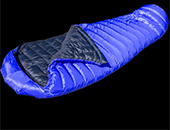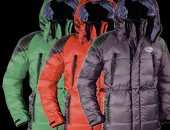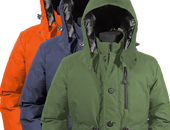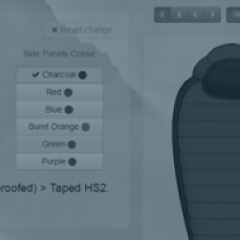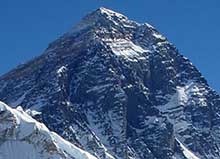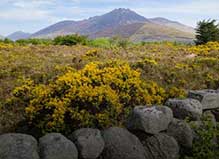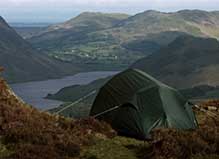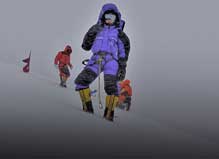In a snowhole, tucked away under an overhang or simply beneath a big boulder with a slot under it: the classic bivouac spot keeps you out of the wind and rain, but can be a bit grim, mucky and damp. Not kind to a down sleeping bag, but a very simple way of sleeping out.
The PHD Greenlandic Snowline Bivvy is an insulated bivvy bag or sleeping bag cover designed to protect and boost the performance of our semi-rectangular Greenlandic down sleeping bags. The Greenlandic bags are a widened semi-rectangular shape with a wide foot-piece for more wriggle room.
Like our Greenlandic Filler , the added insulation (in this case Primaloft Gold 60g) boosts the sleeping bags' warmth by a further 7°C but, in addition, the PHD Greenlandic Snowline Bivvy protects your sleeping bag from the damp and drips found typically in a snowhole, bivvy cave, tarp, or the big boulder with a slot under it.
While the PHD Greenlandic Snowline Bivvy is not intended to be used alone out in heavy rain – after all, the hood area is open to the elements, and a tent or hooped bivvy bag does that job far better – the Greenlandic Snowline is made in Dri-LX waterproof/breathable fabric with fully taped seams to give a high degree of protection to your sleeping bag.
Usable with or without a sleeping bag, when used on its own the Greenlandic Snowline Bivvy has a TOT (Typical Operating Temperature) of 15° (British summer nights) but when used over your regular sleeping bag it provides an added boost of 7°C, while protecting it at the same time – keeping it cleaner and drier.
For Example:
Greenlandic 150 (TOT 10°C), plus the Greenlandic Snowline Bivvy = combined TOT of 3°C Greenlandic 200 (TOT 5°C), plus the Greenlandic Snowline Bivvy = Combined TOT of -2°C Greenlandic 300 (TOT 0°C),TOT of -7°C Greenlandic 400 (TOT -5°C), plus the Greenlandic Snowline Bivvy = combined TOT of -12°C Greenlandic 500 (TOT -10°C), plus the Greenlandic Snowline Bivvy = combined TOT of -17°C
And of course, the lightweight versatility of a half bag & down jacket “Sleep System
The Inside Story: the insulation does far more than just insulating!
Traditional bivvy bags are often troubled by condensation, which leads to a wet sleeping bag. But a lot of modern lightweight tents can be condensation prone too, so what’s the problem with bivvies?
It’s contact with the condensation – the rubbing of fabric against damp fabric – which is the problem. Page one of the camping rulebook says touching your tent fabric means a wet sleeping bag, but obviously it’s unavoidable in a bivvy.
In the Greenlandic Snowline though, your sleeping bag is isolated from the outer fabric by the network of superfine fibres which form the Primaloft Gold insulation. There’s no contact with condensation, so your bag stays dry.
Plus, bivouac sites can be grimy and/or damp; dirt doesn’t help the crucial breathability of a bivvy bag’s fabric, and water-soaked fabric “wetting out” also prevents breathability and is colder than dry (beading) fabric…and where there’s cold, there’s condensation.
Keeping a traditional bivvy bag clean and re-applying its DWR treatment is therefore vital if it’s to have a chance of performing, but this really isn’t all that practical in the field.
Aware of these problems of damp, dirt and contact with condensation, we realised an insulated bivvy bag/sleeping bag cover (especially with Primaloft Gold, which we know copes well with water, sweat, and condensation) is a far better bet.
Peter Hutchinson, founder of PHD, reflecting on a lifetime of bivvies.
VIDEO
VIDEO
VIDEO
VIDEO


